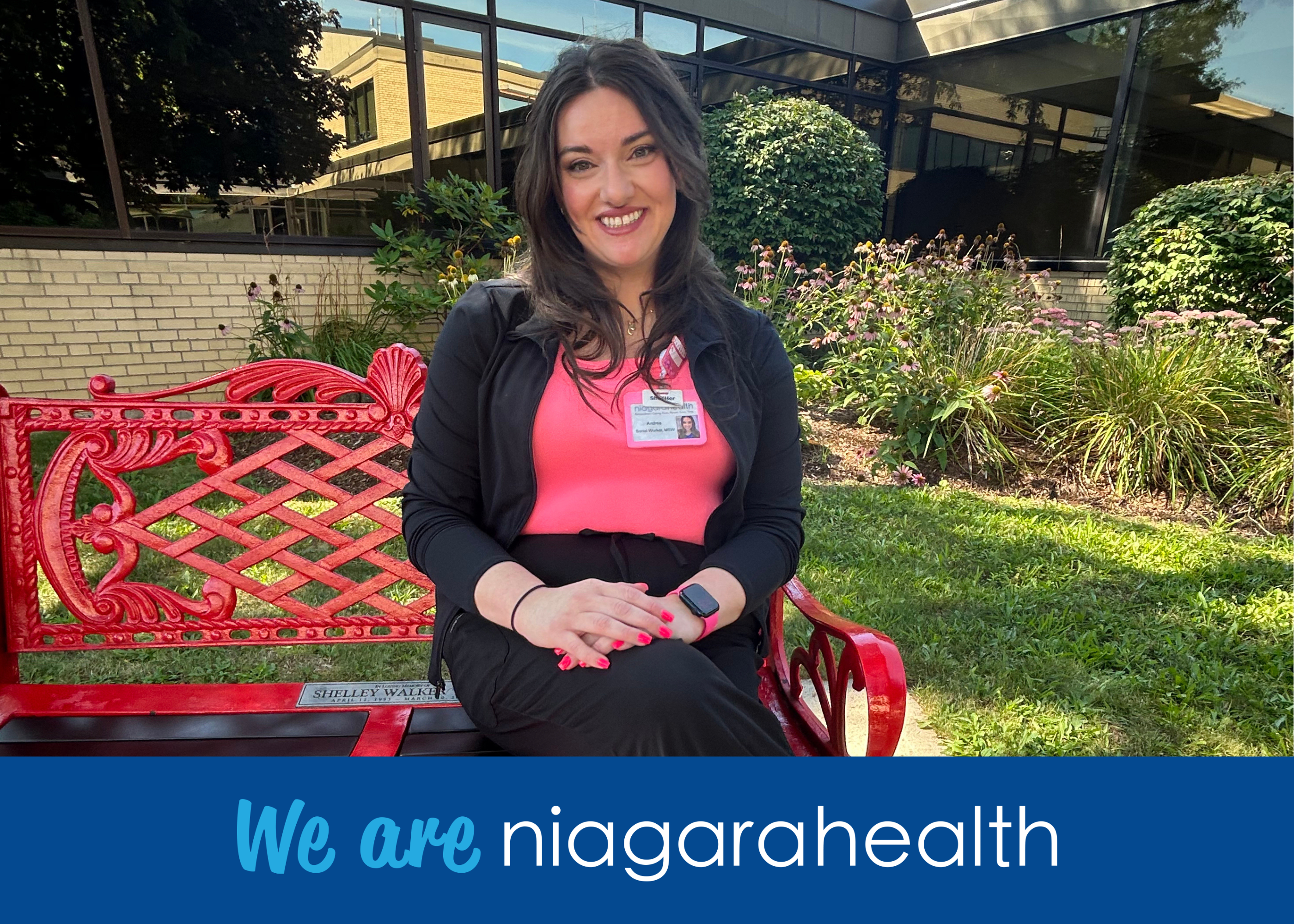We are Niagara Health is a series of stories that celebrates the incredible people working and volunteering in our organization and how they make a difference in the lives of patients and coworkers every day.

Andrea DiToro, Social Worker in the Emergency Department, integrates reconciliation into everyday care by meeting patients wherever they are in their healing journey.
In Niagara Health’s Emergency Department (ED), Andrea DiToro shifts tirelessly through roles, from crisis counsellor to support person, even occasional wedding planner - often in the same day.
It was the chance to walk alongside people during some of the most difficult moments of their lives that drew her to the ED.
“Even if I don’t have the words, I can show up, be present and hold space,” she says. “That’s what guided me here.”
With a Master of Social Work degree, DiToro embraced the opportunity to learn from a diverse patient population and has been continuing her learning journey ever since.
For DiToro, the heart of social work lies in connecting with patients. No two days in the ED are the same.
DiToro moves fluidly from supporting patients in crisis and helping families process grief to guiding someone through a new diagnosis. She has even stepped into joyful moments, playing a role in helping a patient’s family plan a wedding in the hospital – a story that captured hearts across Niagara Health last fall.
“That experience showed me that social work isn’t just about addressing challenges,” she says. “It’s about being present for whatever people are going through - moments of hardship and moments of celebration.
“Even if someone isn’t ready to address addiction or grief today, I hope they’ll remember that they felt respected, not judged and not alone.”
As Niagara Health moves into its fifth year of dedicating the month of September to honouring Truth and Reconciliation, the Indigenous Health Services and Reconciliation team nominated DiToro for her extraordinary efforts in supporting wildfire evacuees from several First Nations communities who arrived in Niagara Falls. Her calm presence and trauma-informed care were formally acknowledged.
“I often worried, what if I say the wrong thing?” she reflects. “This nomination shows me that showing up, asking questions and holding space can truly matter.”
DiToro grounds her practice in trauma-informed care, focusing on listening and offering support rather than prescribing or telling patients what to do.
“I always ask, ‘How can I listen to you? What do you need right now?’” she explains. “It means honouring autonomy, acknowledging the devastating impact of the history of social work practice in child welfare and reinforcing that I’m here to listen, not judge.”
Her growth has also come from collaboration. A memorable moment was when she felt nervous before a presentation and a colleague from the Indigenous Health Services and Reconciliation team offered her a tobacco tie as medicine for comfort. The colleague also guided her in returning the tobacco to the land and practicing gratitude. DiToro later carried out the practice in her backyard.
“It gave me a personal relationship to Indigenous teaching,” she says. “It became part of me, something I value in my everyday life, not just something I studied,” DiToro says.
In bringing reconciliation into everyday care, she emphasizes the power of empathy and ’calling in‘ rather than ‘calling out.’
“When harmful assumptions arise, I try to acknowledge and educate without alienating. That approach feels more productive and lasting.”
Her journey at Niagara Health has come full circle. “Ten years ago, I was a patient at the Niagara Falls Hospital waiting to see a social worker. Now, I’m the social worker waiting to see patients,” she says.
That experience shapes how she meets every person who walks through the door.
“I consider and recognize every patient as the expert in their own story. My role is to empower them toward making change or simply to sit with them and their feelings,” she says.

